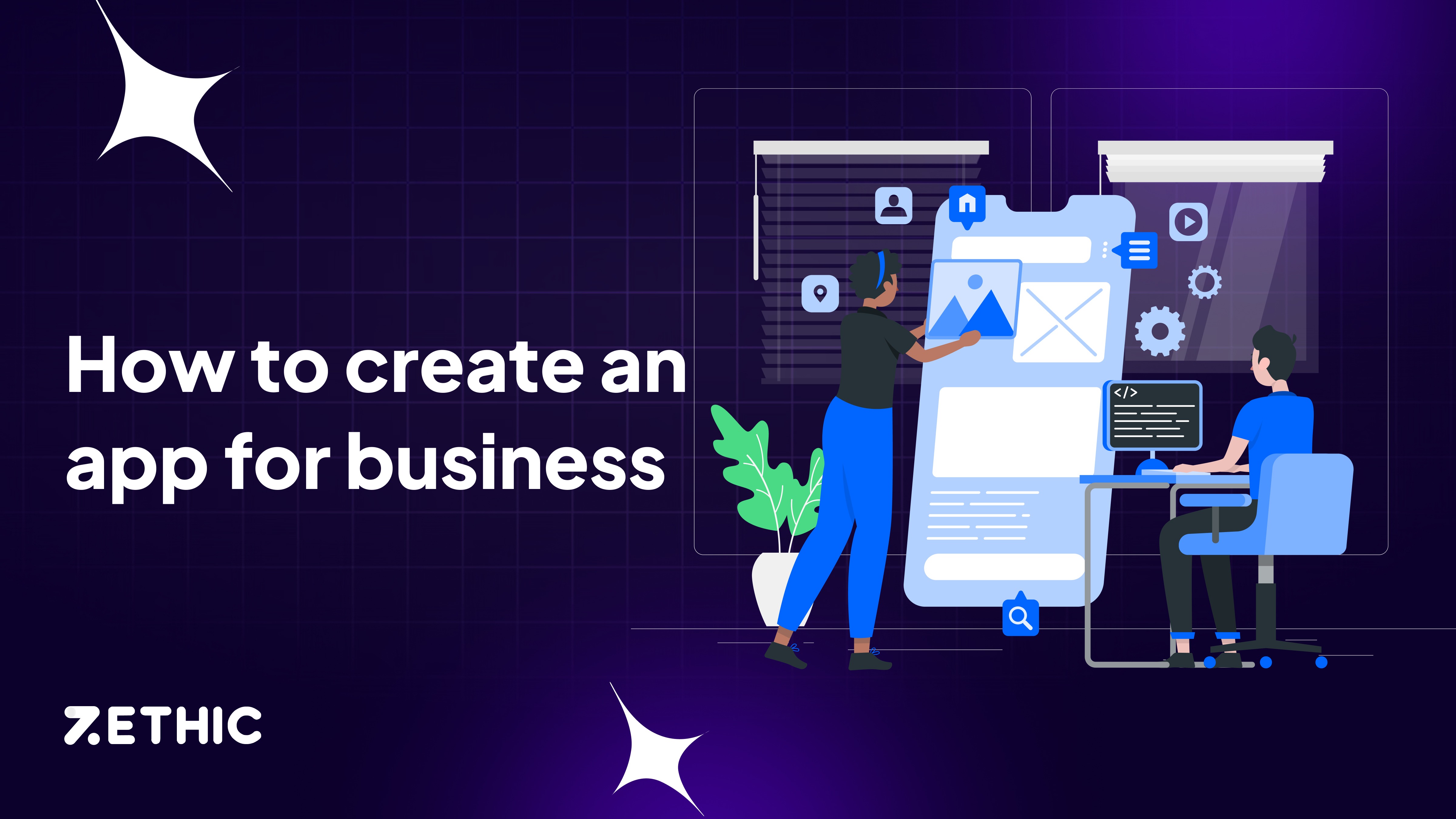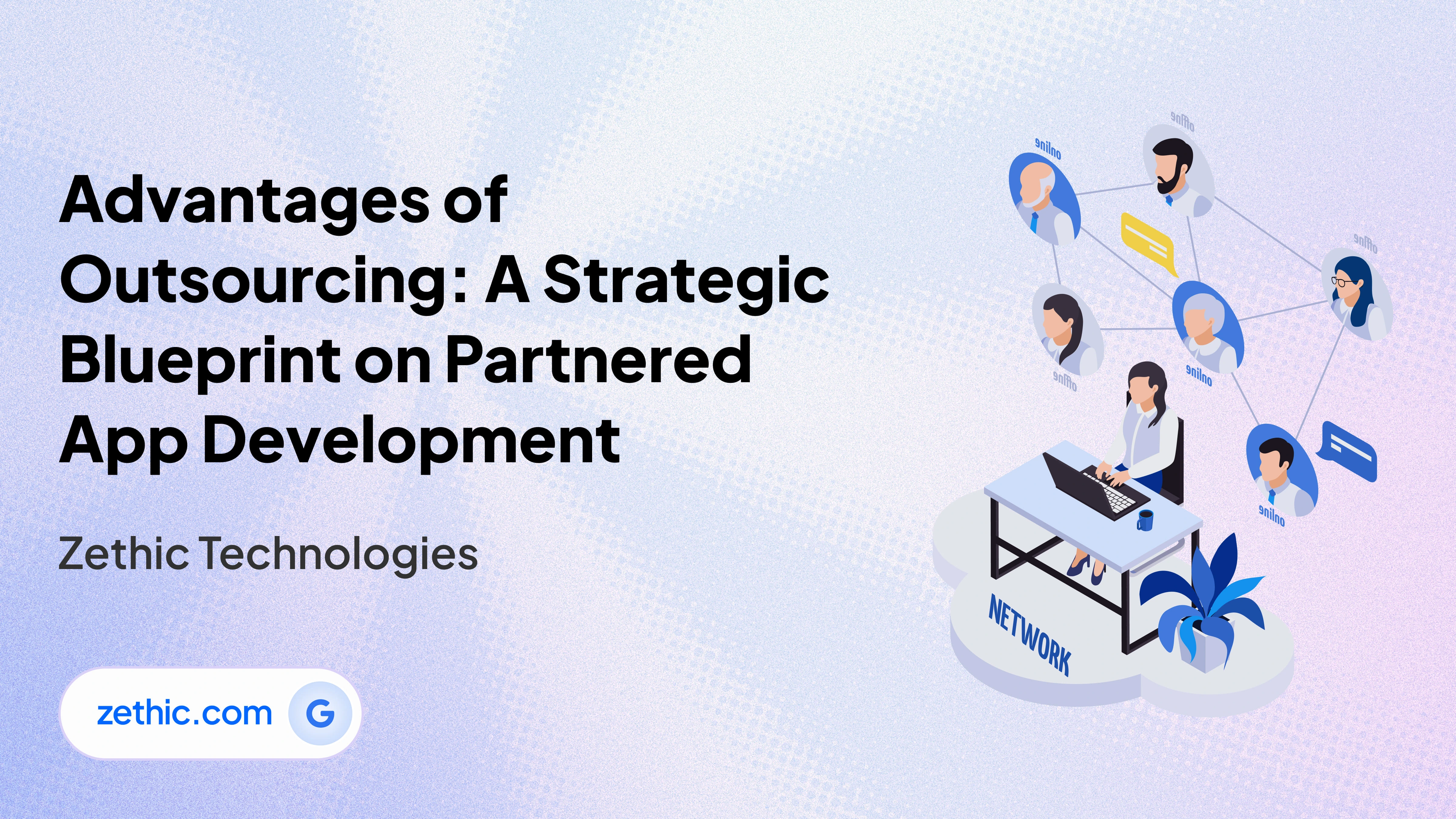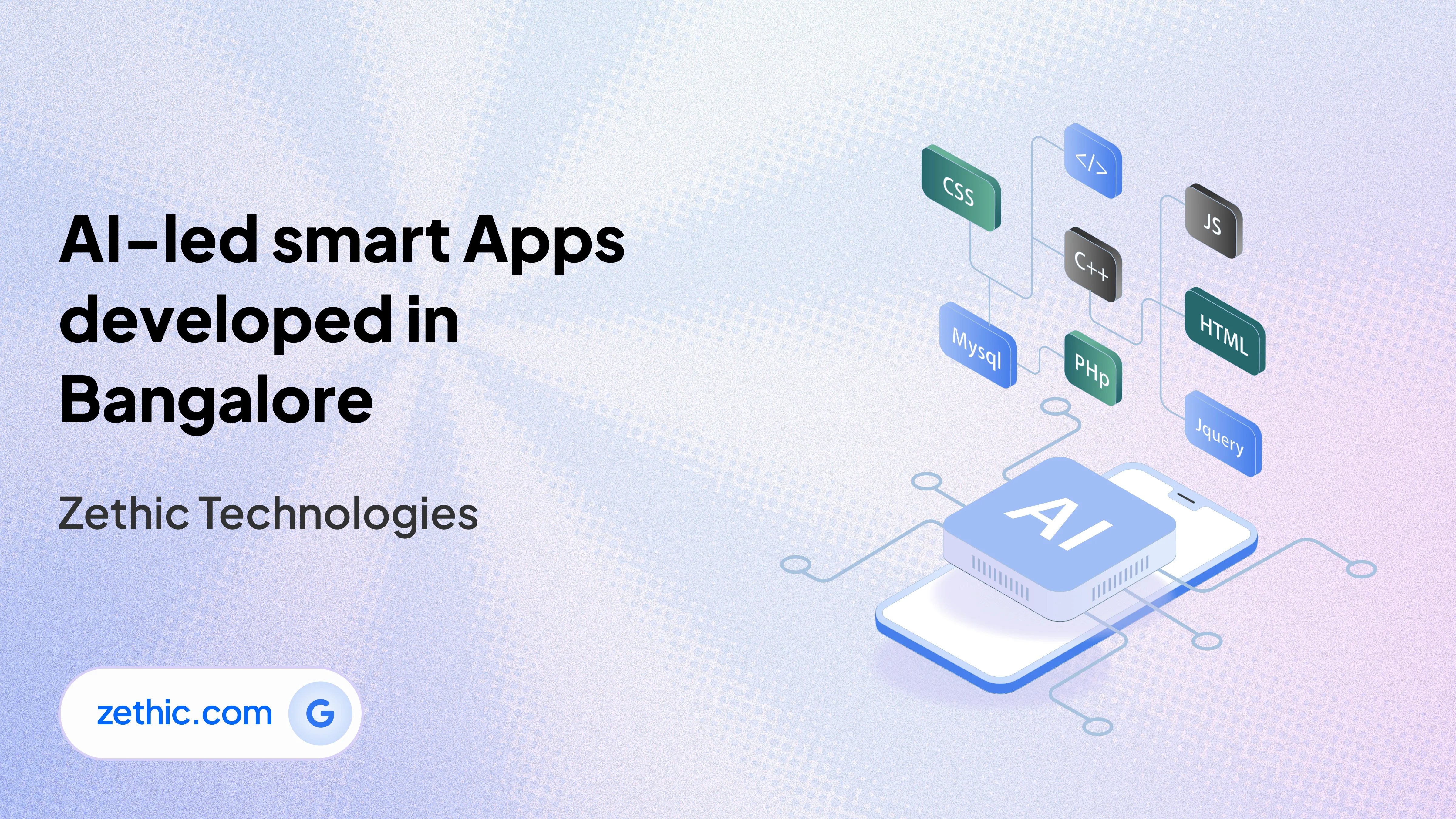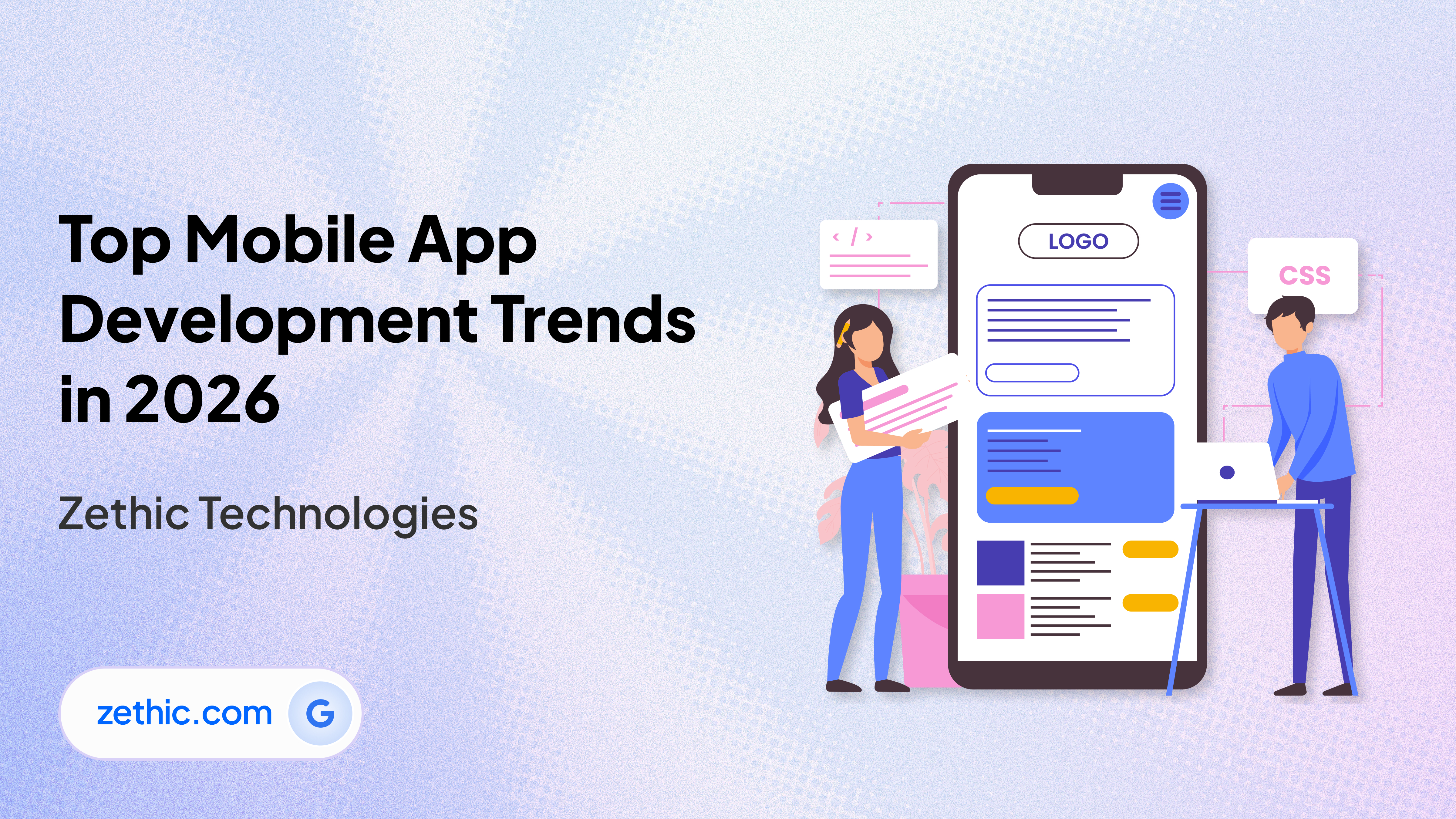In today’s hyper-connected world, mobile apps have become an indispensable tool for businesses across industries. If you’re wondering how to create an app for business, it’s essential to recognize that they are no longer just a luxury; they are a necessity for reaching customers, streamlining operations, and staying competitive.
The impact of mobile apps on businesses is undeniable. The global mobile app market size is projected to reach $967.74 billion by 2033. Businesses with mobile apps experience an average 88% increase in customer engagement. These figures highlight the pivotal role mobile apps play in driving business growth and reshaping the competitive landscape.
Table of Contents
Businesses leverage mobile apps for a multitude of purposes, including:
- Enhanced Customer Engagement: Providing personalized experiences, offering exclusive deals and promotions, and facilitating direct communication with customers.
- Increased Operational Efficiency: Streamlining processes, automating tasks, and improving data collection and analysis.
- Expanded Reach: Reaching a wider audience and expanding market share.
- Improved Customer Service: Providing 24/7 customer support through chatbots and in-app messaging.
- Data-Driven Insights: Collecting valuable customer data to inform business decisions and improve marketing strategies.
Creating a successful mobile app presents a significant opportunity for businesses to stay ahead of the curve, enhance their brand image, and gain a competitive edge in the digital age. This guide will provide a comprehensive overview of step-by-step guide to create an app for your businesses successfully.
Things to Consider Before Developing an App for Your Business
- Define clear goals: Establish specific objectives and desired outcomes for your app to align with your business strategy.
- Understand your audience: Conduct market research to identify your target audience and their preferences.
- Choose the right platform: Decide whether your app should cater to iOS, Android, or both platforms. Here are the top cross platform app development frameworks Flutter, React Native, Ionic, Xamarin, .NET MAUI, and more.
- Plan a budget: Estimate development costs, including design, coding, testing, and maintenance expenses.
- Prioritize usability: Ensure your app offers an intuitive and seamless user experience.
- Focus on scalability: Develop an app with features that can grow with your business needs.
- Ensure security: Plan for robust measures to protect user data and ensure compliance with regulations.
- Research competitors: Analyze similar apps to understand industry standards and identify improvement opportunities.
- Test frequently: Regular testing is critical to identify bugs and improve the app before launch.
- Plan a marketing strategy: Create a promotional strategy to generate buzz before and after launching your app.
Industries Benefiting from Mobile Apps
Mobile apps have revolutionized numerous industries, offering innovative solutions and creating new opportunities through mobile app development for businesses.
Here are some key sectors that are significantly benefiting from mobile app development:
- FinTech: Mobile banking, investment apps, and fintech platforms are transforming the way people manage their finances.
- EdTech: E-learning platforms, educational games, and tutoring apps are making education more accessible and engaging.
- Healthcare: Telemedicine apps, fitness tracking apps, and medication reminders are improving healthcare access and patient outcomes.
- On-Demand Services: Ride-hailing, food delivery, and home services apps are connecting customers with service providers with unprecedented ease.
- Hospitality: Hotel booking apps, travel guides, and restaurant reservation apps are enhancing the travel experience.
- Retail & E-commerce: Online shopping apps, product discovery apps, and loyalty programs are driving e-commerce growth.
- Logistics: Shipping tracking apps, delivery management apps, and supply chain optimization apps are improving efficiency in the logistics sector.
- Social Media & Entertainment: Social media apps, streaming platforms, and gaming apps are connecting people and providing entertainment on the go.
- Saas: Software-as-a-Service (SaaS) apps are providing businesses with access to a wide range of tools and services through mobile devices.
- Travel: Travel booking apps, navigation apps, and accommodation booking platforms are making travel planning easier and more accessible.
- Public Sector: Government services apps, citizen engagement apps, and emergency response apps are improving public service delivery.
This list is not exhaustive, and the impact of mobile apps continues to expand across various sectors. Leveraging mobile app development for businesses can help enhance customer experiences, increase efficiency, and gain a competitive edge in the ever-evolving digital landscape. Understanding mobile app development for businesses effectively can empower you to capitalize on these opportunities. To help you get started, here:
How To Create An App For Your Business In 10 Steps
Step 1. Ideation & Concept Development
- Start by identifying the app’s purpose and the problem it solves.
- Define your target audience and their specific needs.
- Outline the key features that will differentiate your app in the market.
Step 2. Market Research & Analysis
- Conduct a thorough competitive analysis to study similar apps.
- Analyze user reviews and ratings to understand user preferences and pain points.
- Identify gaps in the market and opportunities for your app to excel.
Step 3. Business Plan & Feasibility Study
- Develop a comprehensive business plan outlining your app’s goals, target audience, revenue model, and marketing strategy.
- Conduct a feasibility study to assess the financial viability of your app, considering development costs, marketing expenses, and potential revenue streams.
Step 4. Technical Planning & Architecture
- Select the appropriate technology stack, including programming languages (e.g., Swift, Kotlin, Java), databases, and cloud platforms.
- Design the app’s architecture to ensure scalability, performance, and maintainability.
Step 5. UI/UX Design
- UI/UX Design: Creating intuitive and user-friendly interfaces that are visually appealing and easy to navigate.
- Prioritize user experience by focusing on usability, accessibility, and overall user satisfaction.
Elevate Your App with Expert UI/UX Design
Transform your app’s user experience. Get in touch with Zethic for top-tier UI/UX design today!
Step 6. App Development
- Develop the app using Agile methodologies, ensuring clean, well-documented code.
- Focus on core features initially and gradually add more functionalities.
Step 7. Testing & Quality Assurance
- Conduct rigorous testing, including unit testing, integration testing, and user acceptance testing.
- Identify and fix bugs, ensuring a smooth and bug-free user experience.
Step 8. Deployment & Launch
- Submit your app to relevant app stores (App Store, Google Play Store) following their guidelines.
- Optimize your app store listing with compelling descriptions, high-quality screenshots, and relevant keywords.
Step 9. Post-Launch Support & Maintenance
- Address user feedback promptly and release regular updates to fix bugs, improve performance, and add new features.
- Monitor app store ratings and reviews to identify areas for improvement.
Step 10. Marketing & Growth
- Implement a comprehensive marketing strategy to promote your app, including social media campaigns, app store optimization (ASO), influencer marketing, and paid advertising.
- Track key metrics (downloads, user engagement, revenue) and analyze data to refine your marketing efforts.
Step 11. Collaborate with Zethic to Build Your Dream App
At Zethic, we specialize in assembling skilled teams of developers, designers, testers, and marketers tailored to your app’s needs. Whether you require in-house support or want to leverage experienced freelancers and agencies, Zethic ensures seamless collaboration and clear communication to deliver exceptional results.
How Much Does Mobile App Development for Businesses Cost?
Understanding mobile app development for businesses involves a significant investment. The cost can vary dramatically depending on several key factors.
- App Complexity:
- Simple apps with basic features (e.g., a simple brochure app or a basic contact form) will have lower development costs.
- Moderate apps with features like user authentication, basic data storage, and push notifications will have moderate costs.
- Complex apps with advanced features such as GPS tracking, real-time data processing, AI/ML integration, and complex integrations will have the highest development costs.
- Features and Functionalities:
- The number and complexity of features directly impact the development time and cost.
- Features like in-app purchases, social media integration, and advanced analytics can increase development costs.
- Platform Choice:
- Developing for both iOS and Android platforms generally requires more time and resources than developing for a single platform.
- Developer Rates:
- Developer rates vary significantly based on experience, location, and the chosen development model.
Estimated Cost Ranges:
- Simple Apps: ₹50,000 – ₹2,00,000
- Moderate Apps: ₹2,00,000 – ₹5,00,000
- Complex Apps: ₹5,00,000+
Development Options:
- In-house Development:
- Pros: Greater control, and faster turnaround time for changes.
- Cons: Higher upfront costs, requires building and managing an in-house team.
- Freelancers:
- Pros: Cost-effective, access to a wide range of skills.
- Cons: Project management challenges, and potential quality control issues.
- Development Agencies:
- Pros: Expertise, project management, and support.
- Cons: Higher costs compared to freelancers, less control over the development process.
By carefully considering these factors and choosing the right development approach, you can develop a high-quality mobile app that meets your business goals and fits within your budget.
When exploring mobile app development for businesses, it’s important to note that these are estimated costs and can vary significantly based on specific project requirements and the chosen development team. For a detailed breakdown, check out our in-depth blog on mobile app development costs, or contact us for an accurate estimate tailored to your project.
Get Your Custom App Cost Estimate
Find out the cost to develop your business app. Contact Zethic for a free estimate today!
How Long Will Mobile App Development for Businesses Take?
Mobile app development for businesses, time can vary significantly based on complexity, features, and the chosen development approach. Here’s a general overview of the key stages involved:
- Planning & Requirements Gathering: This crucial phase involves defining the project scope, identifying the target audience, and outlining app features. It typically takes 1-4 weeks.
- Design & Prototyping: UI/UX design, wireframing, and prototyping are essential for creating a user-friendly experience. This stage usually takes 2-6 weeks.
- Development: This is the core phase where the actual coding and development of the app take place. The duration varies greatly depending on app complexity, ranging from 2-12+ weeks.
- Testing & Quality Assurance: Rigorous testing is crucial to identify and fix bugs. This phase typically takes 1-4 weeks.
- Deployment & Launch: Preparing the app for submission to app stores, addressing any final issues, and launching the app. This stage usually takes 1-2 weeks.
Estimated Timeframes:
- Simple Apps: 2-6 months
- Moderate Apps: 3-9 months
- Complex Apps: 6+ months
Important Considerations:
- Agile Development: Agile methodologies, with their iterative approach and focus on flexibility, can help manage timelines effectively.
- Unforeseen Challenges: Unexpected challenges can arise during development, potentially impacting timelines.
- Communication and Collaboration: Effective communication between the development team and the client is crucial for meeting deadlines.
When considering mobile app development for businesses, remember that these are just estimates. The actual development time can vary significantly based on various factors. By carefully planning, managing expectations, and adopting an agile approach, you can increase the likelihood of meeting your project deadlines. Contact us today for expert guidance and a customized timeline for your mobile app development project!
Get Your App Development Timeline
Learn how long it takes to develop your business app. Contact Zethic for a timeline today!
Conclusion
Mobile app development for businesses can be a significant investment, but the potential returns can be substantial. By carefully considering factors like app complexity, features, platform choice, and development team, you can make informed decisions and allocate your budget effectively. Remember, a well-designed and executed app can significantly enhance your brand visibility, improve customer engagement, streamline operations, and drive revenue growth.
To ensure the success of your app development project, it’s crucial to:
- Conduct thorough market research and define clear business objectives.
- Choose the right development team with expertise in your industry.
- Prioritize user experience and focus on creating a user-friendly interface.
- Continuously monitor app performance and gather user feedback for ongoing improvements.
Ready to bring your app idea to life? Partner with Zethic, a leading mobile app development company in Bangalore. We offer best-in-class app development services at competitive prices and with a strong focus on timely delivery. Contact us today for a free consultation.






